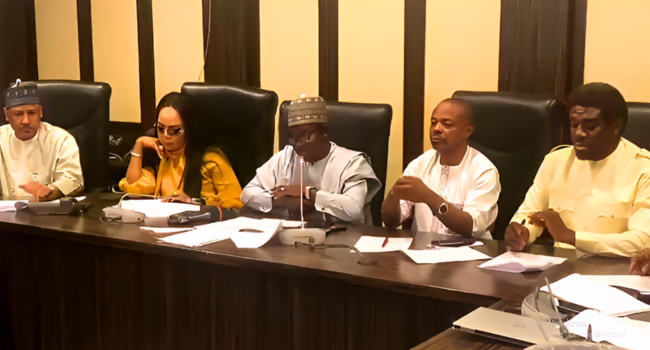The Nigeria Labour Congress (NLC) President, Joe Ajaero, and his counterpart in the Trade Union Congress (TUC), Festus Osifo, have agreed to a new minimum wage of ₦70,000 for Nigerian workers. This is due to the country’s new three-year wage review cycle.
They spoke on Thursday, following a meeting with President Bola Tinubu at the State House in Abuja.
Information Minister Mohammed Idris, Labour Minister Nkiruka Onyejeocha, and senior officials from both parties flanked Ajaero and Osifo.
The NLC President stated, “The announced amount of ₦70,000 reflects our current position. The positive aspect is that we won’t wait another five years for a review.
“Instead of settling on a figure for five years, we’ll now negotiate potentially twice within that period.
“This decision was influenced by the proviso allowing for a review in the next three years.
“We also addressed other issues, such as those involving SSANU, NASU, and the recent actions by the FCT Commissioner of Police, with the President. He (Tinubu) generously instructed the relevant agencies to work out the payment modalities for university workers.”
Osifo added, “The President (Tinubu) announced the ₦70,000 figure. By next week, he should finalize the bill and send it to the National Assembly.
“This became significant because Organized Labour has argued that a five-year review period is too long given the rapid changes in economic conditions.
“The agreement includes a clause for reviews every three years. Following the President’s announcement, labour welcomed his promise.”
This agreement resulted from a series of discussions between labour leaders and the President over the past few weeks, following months of unsuccessful negotiations between labour bodies and a tripartite committee on minimum wage, established by the President in January.
The committee, which included state and federal government representatives and the Organised Private Sector, proposed ₦62,000, while labour demanded ₦250,000 as the new minimum wage, up from the current ₦30,000.
Labour argued that ₦30,000 is unsustainable due to inflation and the high cost of living following the removal of the petrol subsidy by the President.
The information minister confirmed on Thursday that the agreed amount of ₦70,000 would be communicated to the National Assembly in the coming days.



